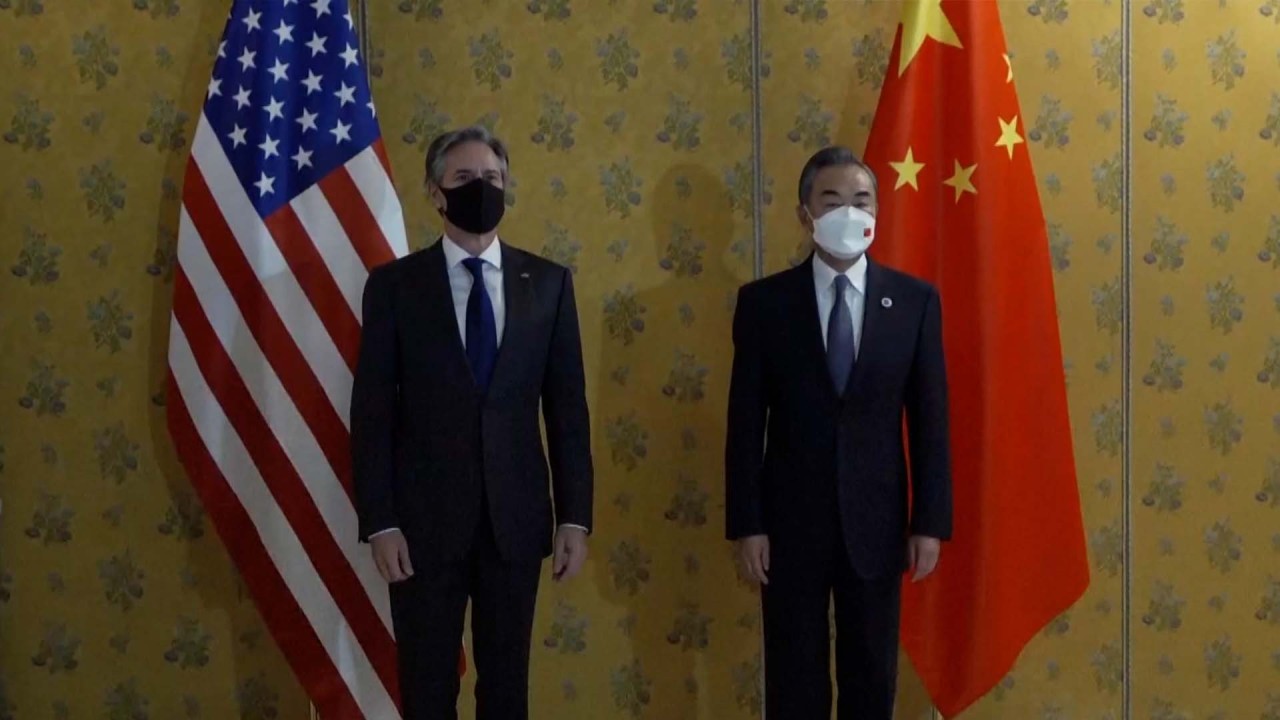
Top US and Chinese diplomats to meet on sidelines of G20 this week
- US Secretary of State Antony Blinken and Chinese Foreign Minister Wang Yi have scheduled an in-person discussion in Bali
- Expected topics include Beijing’s continued tacit support for Moscow and the invasion of Ukraine
US Secretary of State Antony Blinken will meet with Chinese Foreign Minister Wang Yi in Indonesia this week to explore ways to “responsibly” manage the two countries’ rivalry and seek areas of cooperation, US officials said on Tuesday, amid soaring tensions on a number of fronts.
The meeting is to take place on the sidelines of a G20 foreign ministers’ meeting on Thursday and Friday on the Indonesian island of Bali, State Department spokesman Ned Price said.

In a brief statement, Chinese foreign ministry spokesman Zhao Lijian said the two diplomats would “exchange views on the current state of US-China relations as well as major international and regional issues”.
Daniel Kritenbrink, assistant secretary of state for East Asian and Pacific affairs, told reporters that Washington’s goal was to “manage responsibly the intense competition between the United States and the PRC”.
“So I would expect that, in the course of that meeting, we’ll be able to discuss having guardrails – so to speak – on the relationship so that our competition does not spill over into miscalculation or confrontation,” he said.

In addition, Blinken would likely raise areas of potential cooperation between the two powers, Kritenbrink said, including the climate crisis, global health and stemming the transnational flow of narcotics.
In addition to several telephone exchanges, Blinken and Wang have met in person twice in their current roles, including heated exchanges in Alaska last year that set the tone for generally fraught relations between US President Joe Biden’s administration and the Chinese government under President Xi Jinping. They also met at the G20 meeting in Rome last fall.
Nicholas Burns, the US ambassador to China, last month described relations as having possibly reached their “lowest moment” in 50 years, amid disputes over trade, human rights, technology, Taiwan and broader issues around influence in the Asia-Pacific region.
Responding to Wang’s recent flurry of engagements with officials of several Pacific Island nations, the State Department has accused Beijing of pursuing “shadowy” deals with the countries to expand its security footprint in the region.
‘Constructive’ US-China talks not expected to end long-standing rivalry
But in a sign of a possible de-escalation in tensions, the Biden administration is weighing a rollback of some trade tariffs imposed on Chinese goods by his predecessor, former president Donald Trump.
The meeting between Blinken and Wang will follow virtual talks that took place on Tuesday between US Treasury Secretary Janet Yellen and China’s top trade negotiator, Vice-Premier Liu He.
Yellen has said that lowering the tariffs could help fight soaring inflation in the US, though others in the administration, including US Trade Representative Katherine Tai, have reiterated that the tariffs constitute a “significant piece of leverage”.
Besides the trade war, the Biden administration has also initiated an effort to counter Beijing’s economic influence in Asia through a new multilateral pact called the Indo-Pacific Economic Framework.
Both Indonesia and Thailand – where Blinken will travel following the talks in Bali – are among the alliance’s founding members.
During his engagements with his G20 counterparts, Price said, Blinken would reinforce Washington’s commitment to confronting global challenges such as food and energy insecurity, as well as the “threat Russia’s continued war against Ukraine presents to the international order”.
That subject is expected to be on the agenda for his talks with Wang, amid concerns by Washington that Beijing has offered its tacit support of Moscow’s invasion by refusing to condemn it and voting alongside Russia in – or abstaining from – votes at the United Nations related to the war.
Weeks into the invasion, Wang said that China’s ties with Russia remained “rock solid” and called on Western nations to respect Moscow’s “legitimate security concerns”.
He also met with his Russian counterpart, Sergey Lavrov, for talks in March, during which both officials criticised sanctions imposed on Russia by the US and its allies, according to a readout by Moscow.
Lavrov briefs Beijing on Ukraine in first China visit since invasion
Lavrov will also attend the G20 meetings in Bali, but is not expected to meet with Blinken.
“Russia is waging an unprovoked, brutal war against the people and the country of Ukraine, and so for that reason the time is not right for [Blinken] to engage with Foreign Minister Lavrov,” Price said. “We would like to see the Russians be serious about diplomacy. We have not seen that yet.”
In Thailand, Blinken will meet with Thai Prime Minister Prayut Chan-o-cha and foreign minister Don Pramudwinai.
“The US-Thai Alliance is essential for advancing the president’s Indo-Pacific Strategy for a free and open, connected, prosperous, secure, and resilient region,” Price said, using language frequently deployed by the US administration to characterise its efforts to counter China’s growing presence in the region.


